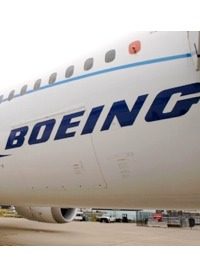
In principle, of course, as well as in constitutional terms, government subsidies of the airplane manufacturing sector are indefensible. Nowhere in the Constitution is the federal government granted any such subsidizing authority. This, like other government subsidies, is nothing more than taxpayer-funded corporate favoritism. Subsidies enlarge moral hazard and distort the workings of the free market.
But the WTO ruling was concerned neither with constitutionality nor with free market principles. What the global body contends is that such subsidies are illegal under the rules of trade the WTO is tasked with enforcing, rules no less deleterious to the free market than subsidies perpetrated by Washington.
This ruling is but the latest in a six-year legal struggle between the European Union and the United States, on behalf of Airbus, the EU’s heavily-subsidized aviation consortium, and Boeing, Airbus’ largest competitor. The WTO has already ruled against Airbus and the EU, and now appears to be leveling the legal playing field. It turns out that — no surprise — both the Europeans and the Americans are pouring subsidy monies into their respective airplane manufactories. Boeing has already acknowledged receiving more than $2 billion in “illegal” subsidies, but contends that Airbus has received eight times as much from EU governments.
Other countries with growing airplane manufacturing sectors, like Canada and Brazil, have been watching the case with growing trepidation, inasmuch as the outcome will clarify and perhaps rewrite global rules on the legality of subsidies.
The larger issue, however, is that the United States and the nations of Europe have apparently ceded their sovereignty over trade relations to a global authority. Unjust as subsidies are, the overriding principle is national sovereignty. Independent nations are entitled to their follies and their delusional mercantile self-interests; the laws of economics have always been sufficient to punish bad policy.
The World Trade Organization remains one of the most dangerous threats to American independence. Created to supersede the old General Agreement on Tariffs and Trade (GATT) in the mid-90s, it has rapidly evolved into a de facto global ministry of trade. In the last decade, the WTO compelled President George W. Bush to drop a proposed tariff on imported steel, a remarkable exercise of supranational authority that displayed the organization’s growing clout. President Bush’s steel subsidy was no more constitutionally valid than Boeing’s harvest of taxpayer dollars (the power to levy tariffs is granted by the Constitution to Congress, not the President), but again, the larger issue is sovereignty. If the WTO continues its global power grab, comparatively free trade, disputes and all, will become a thing of the past, and globally micromanaged trade will be the order of the day.
Photo: AP Images



